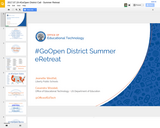
Open Educational Resources presentation
- Subject:
- Education
- Educational Technology
- Elementary Education
- Material Type:
- Primary Source
- Author:
- Tom Gavin
- Date Added:
- 11/16/2017

Open Educational Resources presentation

23 Things is a suite of 23 self-paced online modules that cover a range of topics from video editing to basic coding. Each module or 'thing' consists of information, interactive activities, and invitations to try out various open and free software applications and technologies. The modules have been created using H5P and can be downloaded individually as a single H5P file, modified and re-used under a CC-BY-SA licence - simply click on the 'reuse' link at the bottom of each module.
The content was created by Curtin University students as part of a 'students as partners' project.
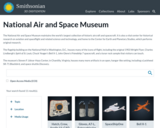
3D Scans of Museum artifacts
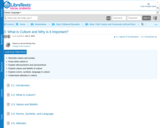
Textbook chapter used in CSI EDUC 204 Families, Communities, and Culture.
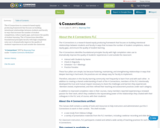
The 4 Connections is a research-based equity producing framework that focuses on building intentional relationships between students and faculty in ways that increase the number of student completions, reduce equity gaps, and ensure the quality of student learning.
The 4 Connections identifies foundational principles faculty with high completion rates use to dramatically improve the quality of students' experiences in and outside the classroom.
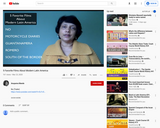
This video offers a brief review of 5 wonderful films that focus on specific topics in modern Latin American History.
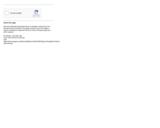
This is a handout I have used to help faculty identify and use Open Educational Resources.
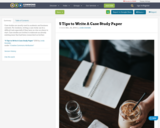
Case studies are mostly used in academic and business contexts. For students, writing a case study can be a difficult task especially if they have no clue on where to start. Case studies are written to elaborate an already existing issue that had been researched on further.
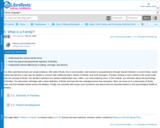
Textbook chapter used in CSI EDUC 204 Families, Communities, and Culture.

This PDF was found in the the SUNY OER Community Course files.
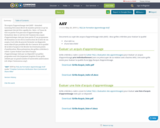
Un acquis d’apprentissage visé (AAV – Intended Learning Outcome) décrit de manière précise ce qu’un apprenant devrait être capable de « faire » à l’issue de tout ou partie d’un parcours d’apprentissage (de formation).
Que ce soit lors de l’examen des acquis d’apprentissage visés par (une partie d’) un programme de formation ou lors de la construction de la liste de ces acquis, il est utile de pouvoir formuler un diagnostic aussi objectif que possible afin de s’assurer de la qualité de la liste d’acquis et de déceler les éventuels points d’amélioration.
Nous présentons des grilles critériées (« rubric ») pour évaluer une liste d’acquis d’apprentissage visés par un dispositif. Les grilles proposées sont très largement inspirée d’une grille utilisée par un grand nombre d’universités américaines (cfr. https://www.wscuc.org/).

This is to help in the identification of OER materials.
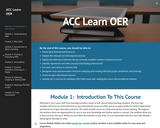
Austin Community College (ACC) Learn OER includes a series of self-paced online learning modules. The first nine modules will serve as an introduction to open educational resources (OER) and as an opportunity for further exploration and discovery of open education practices. The tenth module serves as a final assessment of your learning. Throughout the modules there are opportunities for you to test your knowledge and further explore a concept. The modules allow you to learn at your own pace. While you can follow the modules in any order, it is recommended that you start with Module 1 and progress through in order.
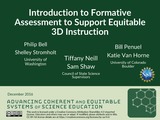
In this professional development session, we will develop a shared understanding of how formative assessment works and different approaches that have been developed. The material for this resource come from a series of PD sessions on formative assessment developed by the ACESSE team: Philip Bell, Shelley Stromholt, Bill Penuel, Katie Van Horne, Tiffany Neill, and Sam Shaw.We will be updating this Facilitator's Guide for ACESSE Resource A with the most up-to-date information about this resource over time. If you encounter problems with this resource, you can contact us at: STEMteachingtools@uw.edu
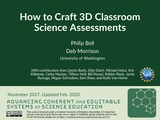
Abstract: This session provides a step-by-step process to support participants as they design a 3D assessment task for the science classroom. Along the way, they learn how to define 3D learning performances for specific lessons—and how to use a range of tools to support their assessment design work. A key goal of the session activity is to improve the connection of intended learning goals to assessment practices. Participants build their 3D assessment design capacity by designing and workshopping tasks—before piloting them in their classrooms. The approaches learned in this workshop can be used with any curricula, at any grade level, and across all subjects of science.
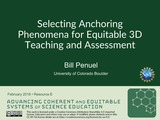
This pair of workshops is designed to introduce you to the process of selecting phenomena that can anchor an entire unit that supports students’ 3D science learning or that can serve as a basis for a multi-component assessment task. This resource can also be used by individuals wanting to refine their teaching practice around phenomena based instruction. You may have heard a lot about phenomena, but you may also be wondering what exactly they are, and whether using phenomena is any different from how teachers teach today already.This learning experience will help you:Explain to a peer the role of phenomena and design challenges in science teaching, with a particular focus on equity and justice. Generate working definitions of phenomena, design challenges, and disciplinary core ideas. Identify phenomena related to a bundle of three-dimensional standards. Experience how phenomena can be introduced at the start of a unit, in order to launch a student-driven series of questions.
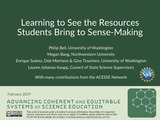
Overview: In this workshop, we will build our capacity to identify the range of intellectual resources students use as they make sense of phenomena. We will first explore how equity and justice relate to culture-based approaches to pedagogy—and then focus on how to identify and leverage the resources students use in moments of sensemaking. This resource can also be used by individuals wanting to learn how equity involves promoting the rightful presence of all students across scales of justice, desettling inequities, and supporting expansive learning pathways. This workshop provides participants with an opportunity to explore important theoretical ideas by exploring examples of how learners engage in diverse sense-making. Participants will learn about some of the challenges that less expansive learning environments can cause for learners from non-dominant communities. This resource is estimated to take between 161-268 minutes (2 ⅔ - 4 ¾ hours), depending on the choices of the facilitator in scenario selection.

The Framework, re-framed in "plain English" for students and faculty. The goal was to make the ACRL Framework easier to understand (many people don't use iterative in everyday conversation, for example) and to make the connection between information literacy and institutional mission/vision and learning outcomes clear.
Cover photo by geraldo stanislas on Unsplash
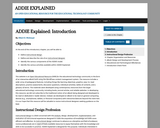
This Open Educational Resource is an interactive eBook in the form of a website titled ADDIE Explained. The eBook focuses on instructional design from the perspective of the ADDIE Model (Analysis, Design, Development, Implementation, and Evaluation) and is designed for novice instructional designers. ADDIE Explained includes a number of educational and technological affordances designed and developed to assist the learners in comprehending the subject matter.

Welcome to the first, biannual Archival Educators Roundtable (AER) Newsletter! In 2016, the Rockefeller Archive Center (RAC) brought together like-minded professionals who use primary sources for public programming, outreach, and education, and the AER was born. As archival education is a still-developing field, the AER created a community where people could share their successes, challenges, and works in progress through casual workshops.AER’s network of educators, archivists, and archival education allies has since expanded its culture of support beyond the biannual meetings here at the RAC through social media, event attendance, joint publications, and email correspondence.It is our hope that this AER Newsletter will further extend the table, so speak, reaching more colleagues as we spotlight educators, and showcase the projects, challenges, and successes of archival education. Just as the aim of AER meetings is to ensure that all perspectives on primary source education are honored, we encourage you, our dedicated AER audience, to reach out and contribute your insights to future AER Newsletters! Many thanks to our first issue's contributors--we couldn't have done it without you.--Marissa Vassari, Archivist and Educator, Rockefeller Archive CenterElizabeth Berkowitz, Outreach Program Manager, Rockefeller Archive Center